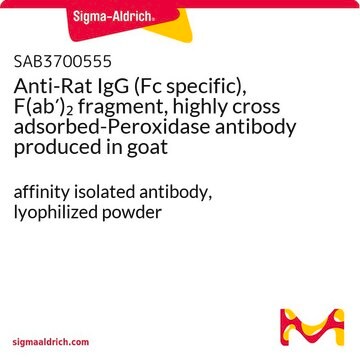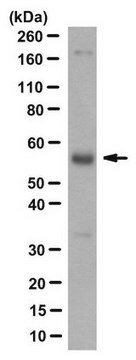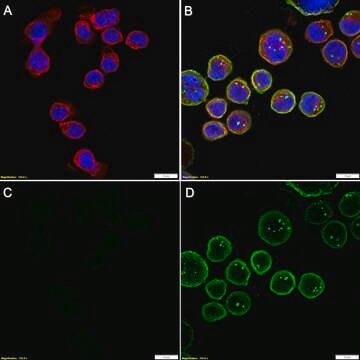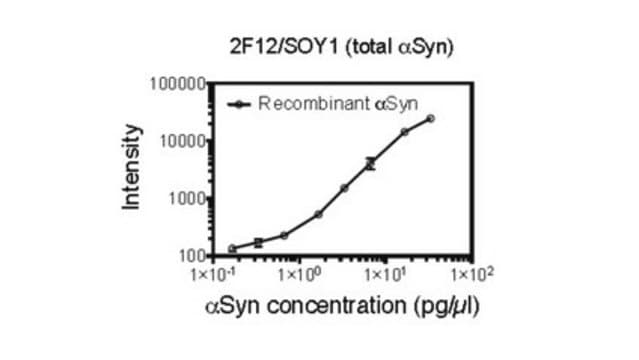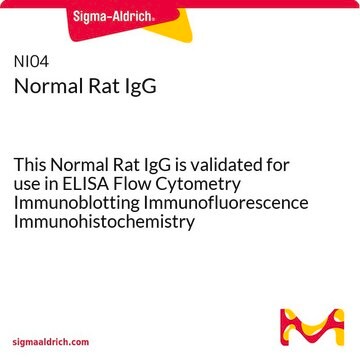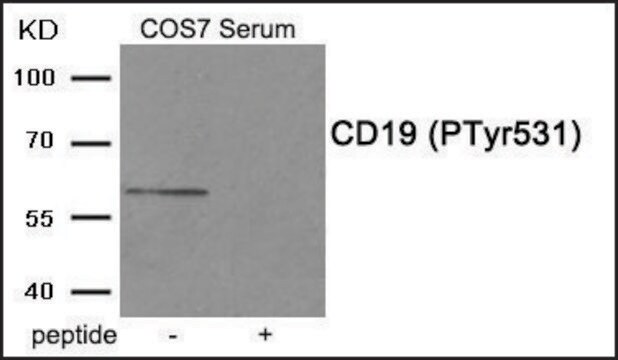MABN390
Anti-Sigma IR Antibody, clone ICR-SIG1R-A
clone ICR-SIG1R-A, from rat
About This Item
Recommended Products
biological source
rat
Quality Level
antibody form
purified immunoglobulin
antibody product type
primary antibodies
clone
ICR-SIG1R-A, monoclonal
species reactivity
human
species reactivity (predicted by homology)
mouse (immunogen homology)
technique(s)
flow cytometry: suitable
immunocytochemistry: suitable
immunohistochemistry: suitable
immunoprecipitation (IP): suitable
western blot: suitable
isotype
IgG2c
NCBI accession no.
UniProt accession no.
shipped in
wet ice
target post-translational modification
unmodified
Gene Information
human ... SIGMAR1(10280)
Related Categories
General description
Immunogen
Application
Immunocytochemistry Analysis: A representative lot was used by an independent laboratory to detect Sigma IR in human cancer cells including pancreatic carcinoma and sarcoma cell lines and xenografts.
Flow Cytometry Analysis: A representative lot was used by an an independent laboratory to detect Sigma IR in tumor cells.
Immunohistochemistry Analysis: A representative lot was used by an an independent laboratory to detect Sigma IR in human cancer cells including pancreatic carcinoma and sarcoma cell lines and xenografts.
Neuroscience
Developmental Signaling
Quality
Western Blotting Analysis: 1.0 µg/mL of this antibody detected Sigma IR in 10 µg of colo-587 cell lysate.
Target description
Physical form
Storage and Stability
Analysis Note
Colo-587 cell lysate
Other Notes
Disclaimer
Not finding the right product?
Try our Product Selector Tool.
Storage Class
12 - Non Combustible Liquids
wgk_germany
WGK 1
flash_point_f
Not applicable
flash_point_c
Not applicable
Certificates of Analysis (COA)
Search for Certificates of Analysis (COA) by entering the products Lot/Batch Number. Lot and Batch Numbers can be found on a product’s label following the words ‘Lot’ or ‘Batch’.
Already Own This Product?
Find documentation for the products that you have recently purchased in the Document Library.
Our team of scientists has experience in all areas of research including Life Science, Material Science, Chemical Synthesis, Chromatography, Analytical and many others.
Contact Technical Service